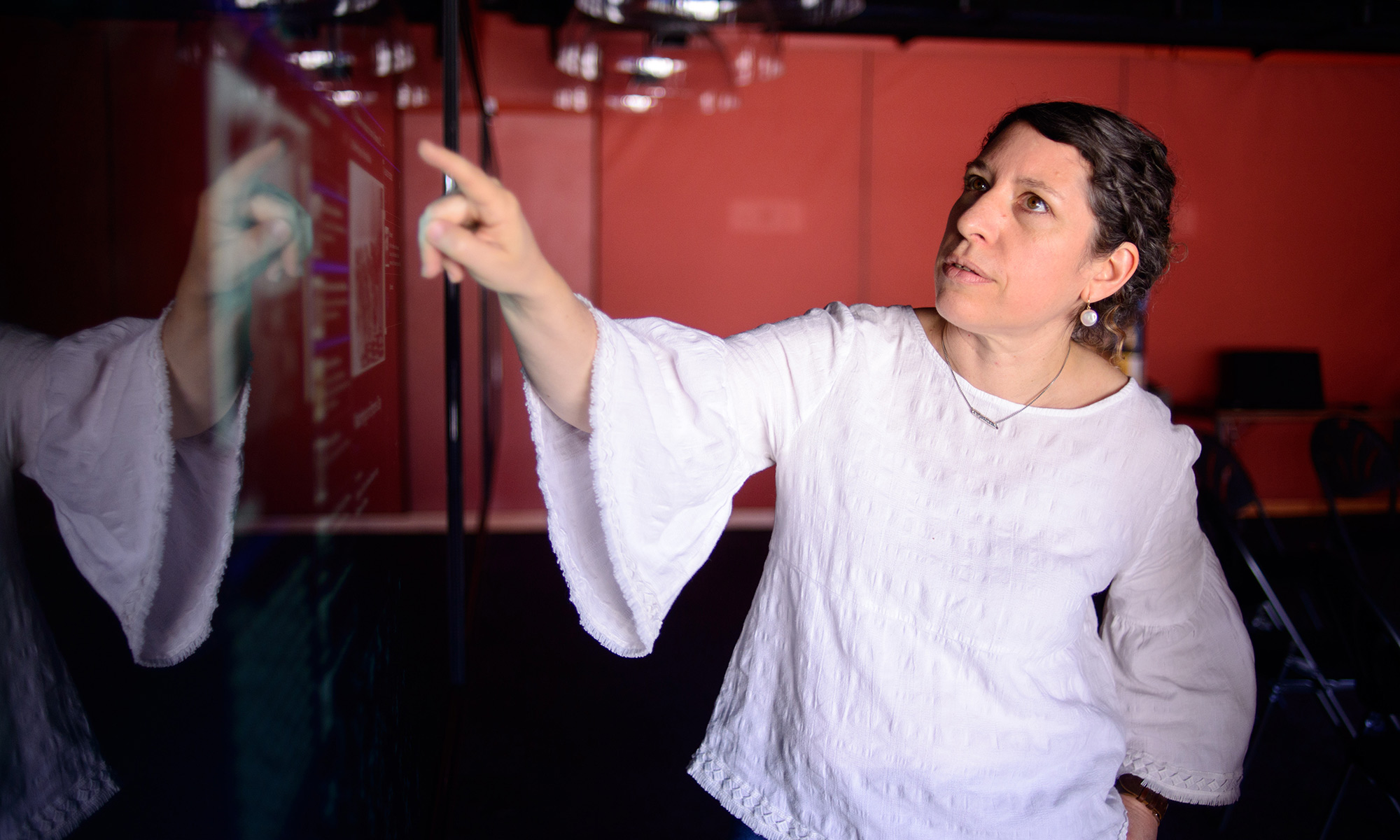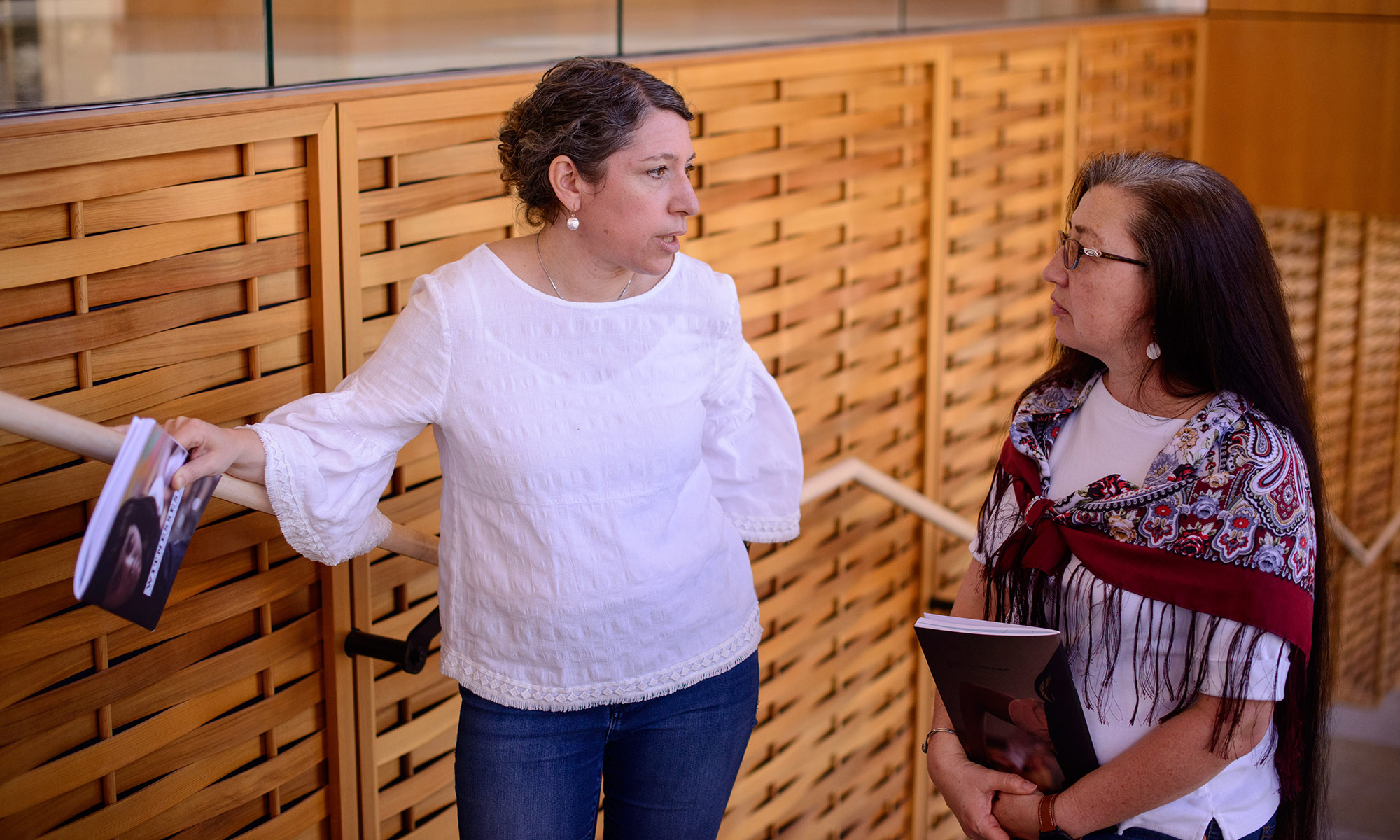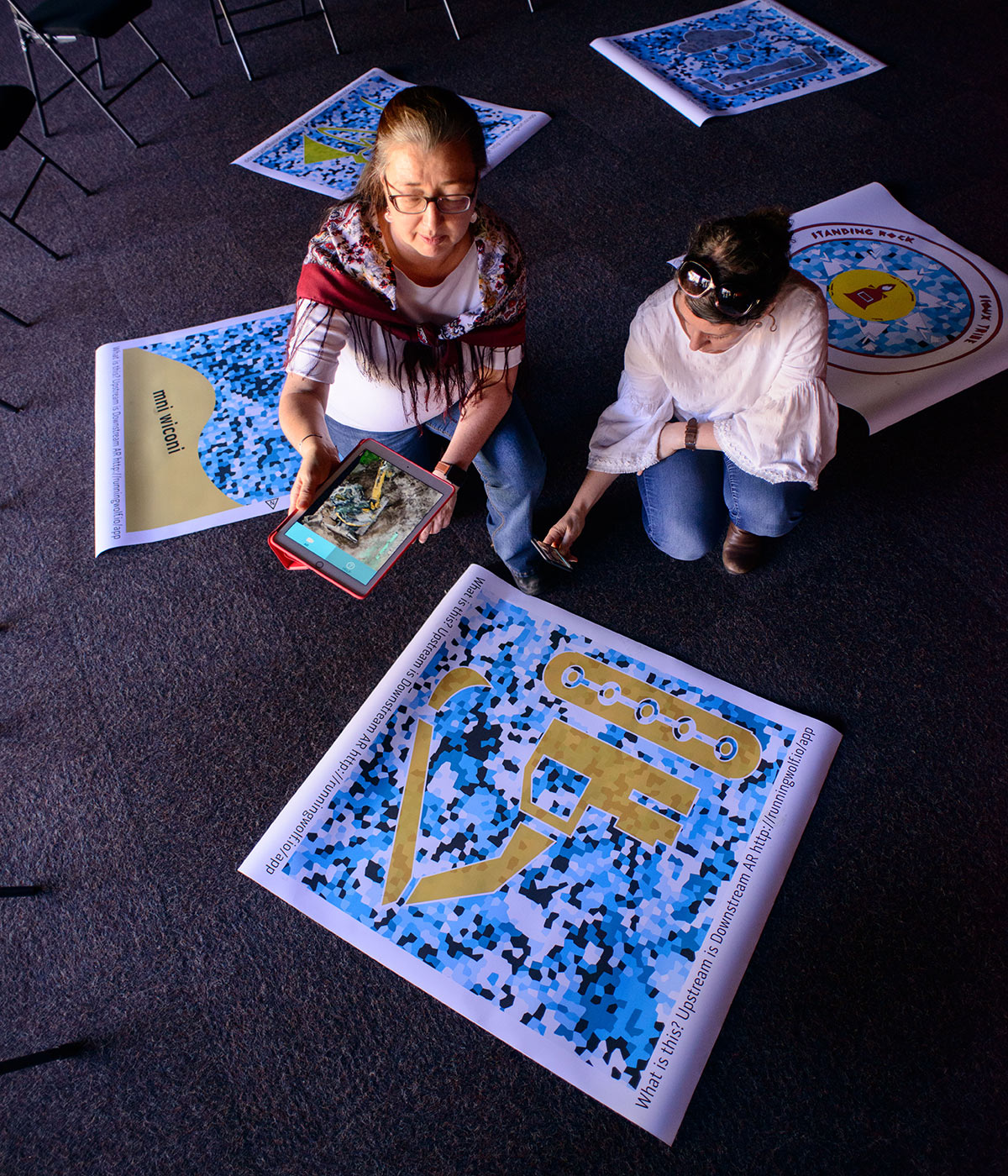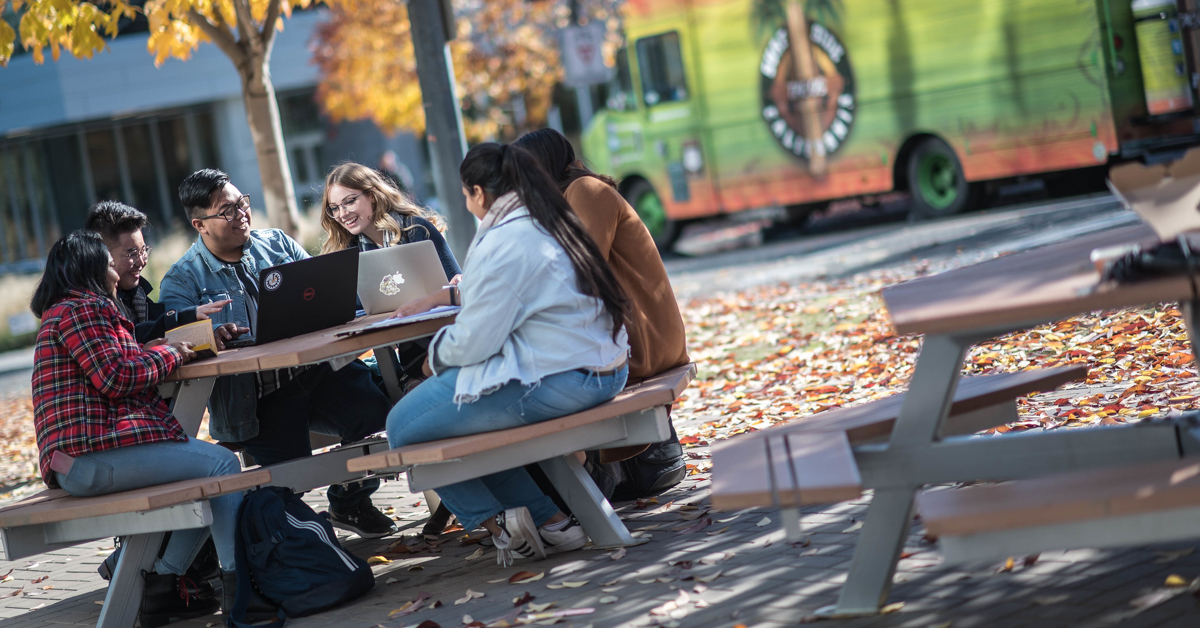

“Each language gives us a worldview; each language is an archive of knowledge. Why wouldn’t we want to protect, maintain, and encourage as many languages as possible to flourish?”
Daisy Rosenblum is a linguistic anthropologist specializing in supporting community-based language reclamation. She currently works with Kwakwa̱ka’wakw community members in two communities to record conversation, narrative, and other types of speech for teachers and learners of Kwak’wala, a Wakashan language of British Columbia.
Rosenblum began her career as an art educator in the New York public school system, where she became inspired by the mix of languages that she encountered among her students — and the diverse worldviews they reflected. This led her to pursue graduate studies in linguistics and language revitalization. Since joining the faculty of UBC’s First Nations and Endangered Languages Program, Rosenblum has focused on methods, products and partnerships that support the teaching and learning of Indigenous languages. This has included working with students on Augmented Reality and Virtual Reality and bringing digital recording tools to community partners interested in documenting their own languages.
Along with her colleague David Gaertner from the Institute for Critical Indigenous Studies, Rosenblum and her students have produced an exhibit featuring a series of Indigenous language and sound installations entitled Listening to the Land: A Community Engaged Sound Installation. The exhibit and an accompanying panel are offered at Congress 2019. We spoke to Rosenblum about her work on language revitalization and what she’s most looking forward to at Congress 2019.
Daisy Rosenblum’s Congress 2019 Events
- Exhibit: Listening to the Land: A Community Engaged Sound Installation (June 1-5, 13:00-17:00 in the UBC Life Building)
This exhibition features a series of Indigenous language and storytelling sound installations focused on local and regional Indigenous languages produced at the Community Engaged Documentation and Research Space (CEDR), a new UBC infrastructure currently being developed by David Gaertner and Daisy Rosenblum for the Institute for Critical Indigenous Studies (CIS). The installation features stories developed by Gaertner, Rosenblum and students in FNIS 454, and FNEL 141, 142 and 282.
- Roundtable: Listening to the Land (June 4, 13:00 – 14:30 in the UBC LIfe Building – LIFE 1505)
Drawing on perspectives from across Indigenous studies, from political science to new media and linguistics, this roundtable will examine the decolonial potential of sound to reclaim and reframe our experiences of Indigenous knowledges. Participants will share and reflect on audio soundscapes produced in the Institute for Critical Indigenous Studies and discuss key contributions to Indigenous sound art.


Daisy Rosenblum and her PhD student Caroline Running Wolf at the Indian Residential School History and Dialogue Centre at UBC.
How long have you been working on community-based language revitalization and what does this work involve?
I first visited the community with whom I have worked the longest, the Tsulquate Reserve of the Gwa’sala-‘Nakwaxda’xw Nations, in the fall of 2009. All of the work I do involves spending time with fluent Elders, recording them in their language using audio and video, archiving those recordings appropriately (with communities and in archives focused on language), and translating and transcribing using software designed for that purpose. But beyond this my work is extremely varied, and involves a lot of collaborations and partnerships. Our first project involved collecting digital copies of archival photographs from museum collections and bringing Elders together to view the photographs and talk about the images in Kwak’wala.
Since then, my work has evolved to focus on knowledge of place and territory in language. The type of work we do is no longer just about recording language. Among other activities, we organize trips for community members to the Gwa’sala and ‘Nakwaxda’xw traditional territories from which they were relocated in 1964, we have set up a training program for youth to use drones to record video of their territories, and we’ve been commissioning documentary films about food gathering and preparing in the territories, as well as a film documenting the research process in the community. In teaching here at UBC I have also been lucky to work with students from Tsulquate: Lucy Hemphill Hache, who graduated last week with a degree in First Nations and Indigenous Studies, applied for a grant to start Tsulquate’s first Language Revitalization Program last year, and she started this week as the coordinator of the Program.
Through connections with colleagues and students I have also been building relationships with other First Nations in BC, and I am excited to see where they go. I am extremely grateful to everyone in Tsulquate for their willingness to welcome me as a guest and partner, and for the opportunity to support their process of maintaining and strengthening their language — which must also be understood as a process of reclamation: reclamation not only of language but also culture, territory, and sovereignty.
How did you become interested in language reclamation and revitalization?
My interest in language reclamation and revitalization probably began with my grandfather, who was from Barcelona, and spoke several languages, which always captivated me — and yet he only wanted my mother to speak English, and in turn I was raised only speaking English. I don’t know how to speak any of my grandparents’ heritage languages (German and Yiddish, along with Catalán). So I can relate to the feeling of family connection to a language along with a feeling of alienation or disconnection when you can’t speak or understand.
I went to graduate school to study linguistics and language revitalization after several years working as an art teacher in primary schools, and then a curriculum designer helping K-5 teachers use art projects to teach literacy to English language learners in New York City public schools.
In some of the classrooms I taught in, every child spoke a different language at home — 25 different heritage languages, and 25 different places of origin. It was amazing. In North America we have come to think that it’s normal to be monolingual, and that it’s normal for English to be as dominant as it is, but that’s a global anomaly. The vast majority of people in the world are multilingual, and navigate multiple languages easily. The world has always been so, despite the effects of imperial expansion forcing monolingualism and language shift. Each language gives us a worldview; each language is an archive of knowledge. Why wouldn’t we want to protect, maintain, and encourage as many languages as possible to flourish?
Why have you chosen to devote your career to language revitalization?
I have thought about this a lot. My own understanding about why I am here now doing this work is still evolving. I feel incredibly lucky to be able to do this work at UBC that brings together my love for teaching with my love for language and what it contains. I love to work with people and pay attention to what they care about. I love the part of this work that brings me outdoors to special places with people who know them best. I feel very gifted by the people who have welcomed me into their communities to join their work.


Daisy Rosenblum and her PhD student Caroline Running Wolf examine “DownStream is UpStream”, an interactive Augmented Reality app created by Running Wolf for a festival in Bozeman, Montana, asking pedestrians to think about their own relationship to water conservation and usage.
What’s on your list of must-see events, talks or performances at Congress 2019?
On Monday, I’m looking forward to attending At the Root of Reconciliation is Language: The BC Indigenous Language Proficiency/Fluency Degree Framework at Sty-Wet-Tan Hall. I’m also excited to check out the exhibit ‘Indigenizing digital space: telling the story of the RavenSpace publishing project’ at the Irving K. Barber Centre. On Wednesday morning, David Gaertner’s DHSI@Congress plenary Decolonial DH?: Maker Ethics Across Indigenous Studies and the Digital Humanities will be great. And I’m excited about our exhibit ‘Listening to the land’ and the associated panel on Tuesday. Finally, I’ll have some friends and colleagues in town who I don’t get to see often, so that will be a treat.
Related
